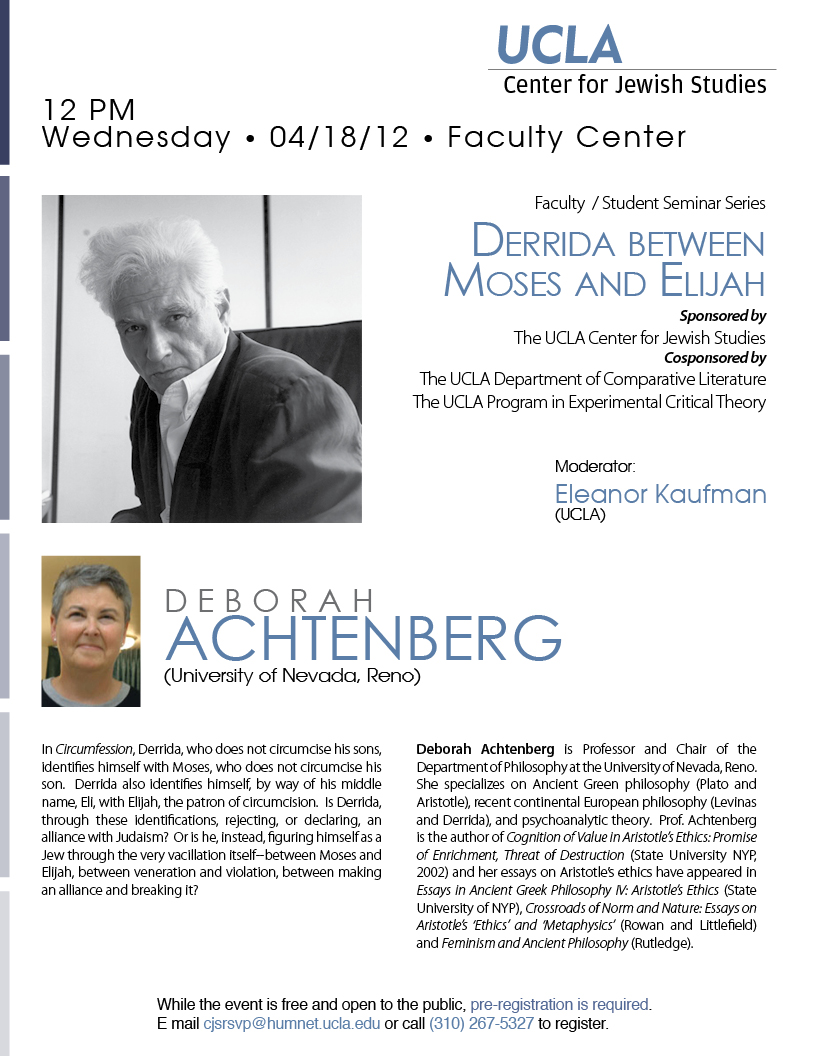
In Circumfession, Derrida, who does not circumcise his sons, identifies himself with Moses, who does not circumcise his son. Derrida also identifies himself, by way of his middle name, Eli, with Elijah, the patron of circumcision. Is Derrida, through these identifications, rejecting, or declaring, an alliance with Judaism? Or is he, instead, figuring himself as a Jew through the very vacillation itself–between Moses and Elijah, between veneration and violation, between making an alliance and breaking it?
Deborah Achtenberg is Professor and Chair of the Department of Philosophy at the University of Nevada, Reno. She specializes on Ancient Green philosophy (Plato and Aristotle), recent continental European philosophy (Levinas and Derrida), and psychoanalytic theory. Prof. Achtenberg is the author of Cognition of Value in Aristotle’s Ethics: Promise of Enrichment, Threat of Destruction (State University NYP, 2002) and her essays on Aristotle’s ethics have appeared in Essays in Ancient Greek Philosophy IV: Aristotle’s Ethics (State University of NYP), Crossroads of Norm and Nature: Essays on Aristotle’s ‘Ethics’ and ‘Metaphysics’ (Rowan and Littlefield) and Feminism and Ancient Philosophy (Rutledge).